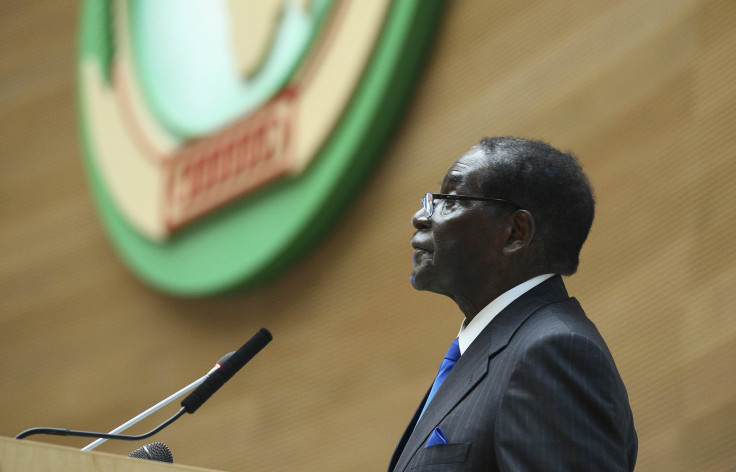Who Is Zimbabwe's President Robert Mugabe? African Union Elects Controversial Leader To Bloc's Chairmanship

Zimbabwean President Robert Mugabe was appointed Friday as the new chairman of the 54-nation African Union, in a step that some warn could tarnish the continental bloc’s relations with the West. The 90-year-old president is Africa’s oldest leader and, though he's celebrated as a nationalist hero in some quarters, is widely known in western countries for his undemocratic rule.
Some Western governments have already expressed their disappointment at Mugabe’s appointment to the position, Reuters reported. While the AU chairmanship is largely a ceremonial role, the leader is in a position to influence topics for debate within the bloc. In his acceptance speech, Mugabe called for a greater emphasis on guarding the continent’s mineral wealth from foreigners.
"African resources should belong to Africa and to no one else, except to those we invite as friends. Friends we shall have, yes, but imperialists and colonialists no more,” he said Friday to the assembled leaders at the AU summit in Ethiopia’s capital Addis Ababa. The call is a familiar one from the president’s decades-long rule in Zimbabwe, which has included threats against foreign companies as well as land reform policies that have led to the large-scale eviction of the nation’s white farmers.
Mugabe has ruled Zimbabwe since its 1980 independence from Britain. He first rose to prominence during the country’s guerrilla war against the British during the 1970s. At the time, he was seen as a revolutionary hero fighting for Zimbabwe's freedom from white minority rule, something that has contributed to African leaders’ continued reluctance to criticize him, the BBC reported.
However, since then, the leader has clung to power through sometimes violent means, including in the aftermath of the country’s 2000 referendum, Mugabe’s first electoral defeat. Mugabe’s Zanu-PF government was shown to be responsible for widespread and systematic abuse that led to the killing of up to 200 people and the beating and torture of 5,000 more, according to advocacy group Human Rights Watch.
"Mugabe has trashed democracy in Zimbabwe and he and his party have ruined the economy," Obert Gutu, a spokesman for the opposition Movement for Democratic Change said, according to Reuters. This view is shared by the United States and the European Union, which imposed travel and financial sanctions on Mugabe and his allies in the years following 2000’s post-election violence.
Mugabe blamed Western sanctions for the sorry state of Zimbabwe’s economy, though critics and economists have laid the blame on his violent land redistribution policies, which they say has crippled the country’s agriculture industry. Zimbabwe suffered hyperinflation until it had to abandon its currency for the U.S. dollar in 2009, according to the Associated Press.
While Mugabe might have the support of other African Union leaders, some of the continent's prominent figures, including South African Archbishop Desmond Tutu, have criticized his dictatorial rule. Tutu said the Zimbabwean ruler has become a cartoon figure of the archetypal African dictator, the BBC reported.
© Copyright IBTimes 2024. All rights reserved.






















